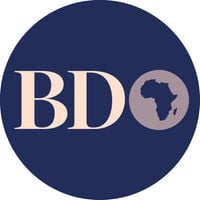Central Bank of Kenya Governor Patrick Njoroge. PHOTO | SILA KIPLAGAT | NMG
The Central Bank of Kenya (CBK) is at an advanced stage of complying with a presidential directive to increase the Sh1 million cash transaction limit.
President Uhuru Kenyatta on Tuesday said in his annual ‘State of the Nation Address’ that the CBK “was at advanced stage of revising the Sh1 million threshold for cash deposits and withdrawals in banks”.
The president said a higher cash transaction limit “will facilitate easy transactions for MSMEs and help the economy respond to Covid shocks”.
CBK Governor Patrick Njoroge said at a separate event that the review was "being dealt with in the central bank" and that he has to make a good judgement based on a number of concerns.
Dr Njoroge said he shared concerns that some banking officials were harassing businessmen over the Sh1 million cash transaction limit, prompting a presidential directive for an upward review.
Central Bank of Kenya (CBK) governor Patrick Njoroge says some banks were not “customer-centric” when questioning the source and use of cash deposits and withdrawals as required by the Proceeds of Crime and Anti-Money Laundering Regulations 2013.
Dr Njoroge says the banks should refer to a history of regular cash transactions in flagging suspicious deals so that they don’t end up subjecting customers to questions on the source and use of the cash every time they visit banking halls.
That should be part of “Know Your Customer” checks by banks.
“There’s ‘Know Your Customer’ sort of issue. It’s not that they (banks) should start to know you (customer) every single time you come. No. No. There’s a history,” Dr Njoroge told an online press conference on Tuesday.
“In some sense, everything that you are doing, you begin being profiled as a thief and et cetera. Obviously, that — (and) let’s even call it harassment— is something that we don’t support and I don’t think anybody will support.”
The law requires financial institutions to keep records of cash transactions of more than Sh1 million and report suspicious deals to the Financial Reporting Centre (FRC) – the agency operationalised in April 2012 and tasked with identifying and combating money laundering and financing of terrorism.
Businesses and individuals transacting more than Sh1 million are required to declare to their bankers why the money cannot be deposited or withdrawn through electronic means under the Kenya Electronic Payments and Settlement System and Real-Time Gross Payment System (KEPSS/RTGS).
The disclosures include the source of the cash, how it will be spent, who are direct and indirect beneficiaries as well as the full identity of the intended beneficiaries.
President Kenyatta on October 20, however, ordered the Treasury to engage stakeholders and come up with a higher threshold than the current $10,000 (Sh1.12 million), stating its implementation by banks “has been onerous for Micro, Small and Medium Enterprises (MSMEs)”.
The disclosures are part of global practice aimed at ridding financial systems of dirty cash which are spent on supporting criminal activities such as terrorism and drug dealing.
The proposal comes at a time FRC is looking to add more businesses and professions to the list of entities with reporting obligations, including law firms, second-hand car dealers and trusts holding assets for wealthy people.
cmunda@ke.nationmedia.com



No comments:
Post a Comment